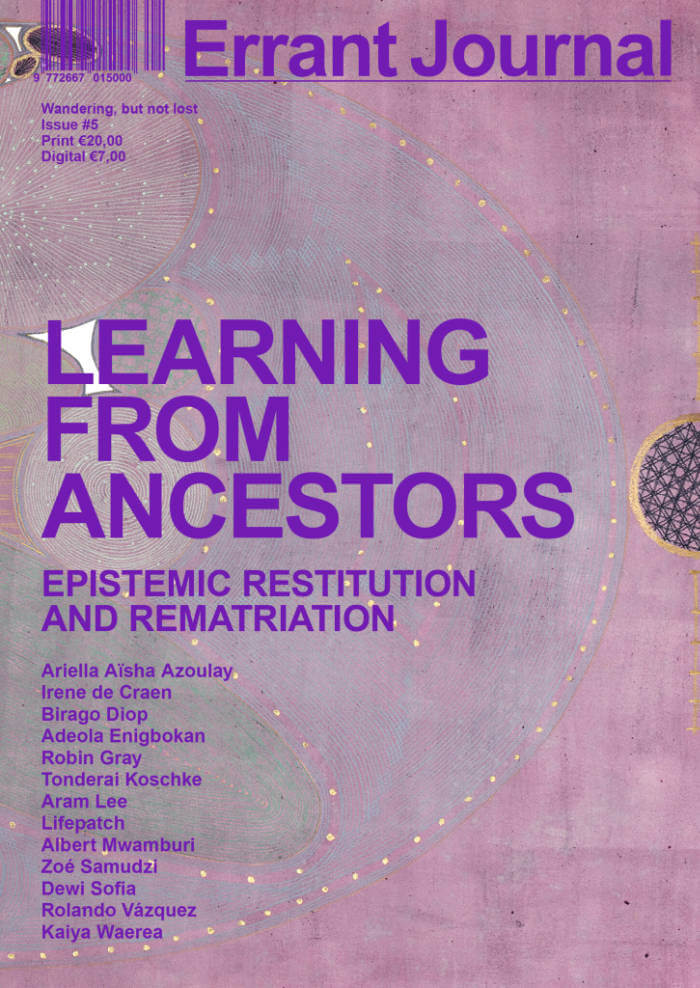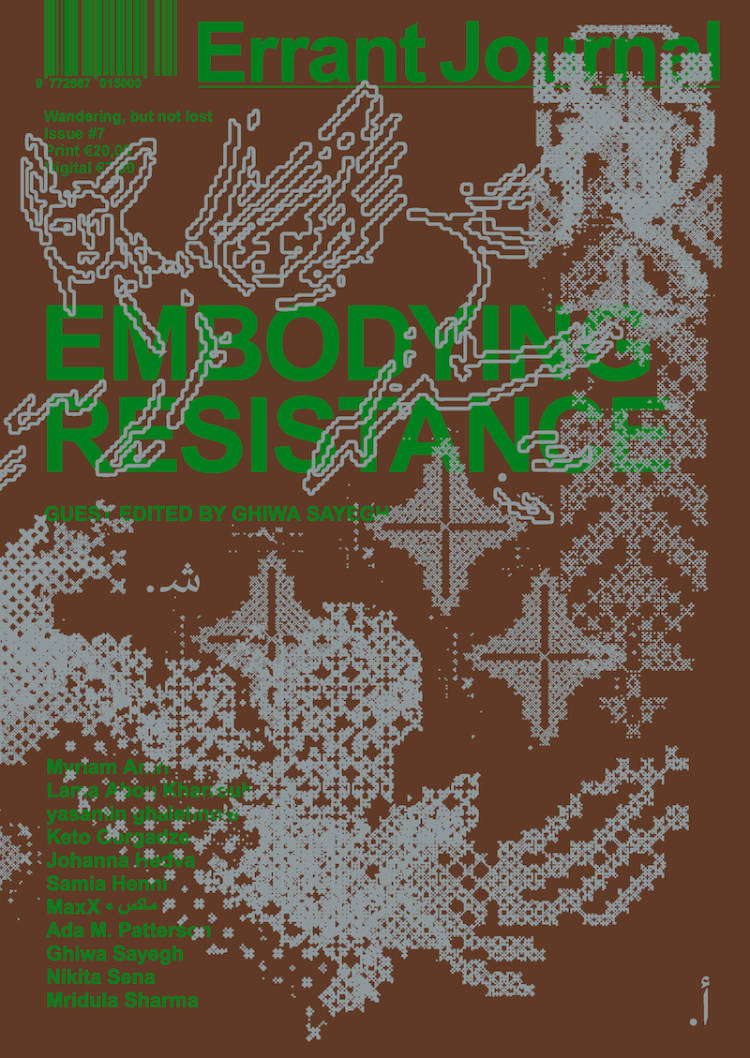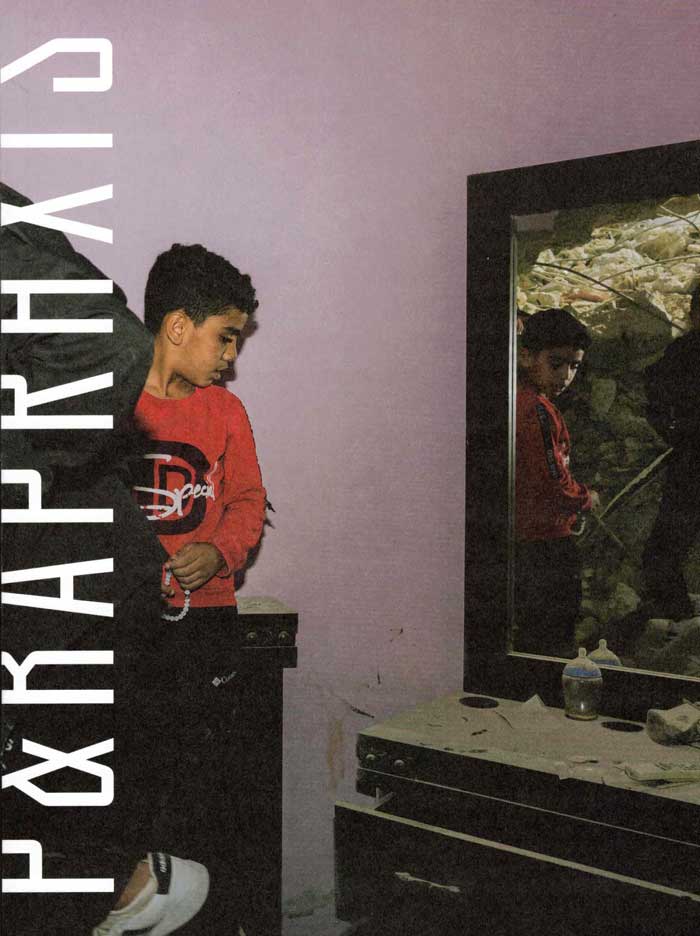
Errant Journal 5: Learning From Ancestors. Epistemic Restitution and Rematriation
Irene de Craen ed.
Starting from the position that the return of all colonially looted, pillaged, and stolen heritage should take place in full and without hesitation, Errant Journal No. 5 ‘Learning from Ancestors’ wishes to go beyond the question of ‘giving back’, and ask what is given back by whom and to whom, where, and how? In this now seemingly omnipresent discussion, who is speaking, and which voices are being listened to? To do this, as is reflected in the title of this issue, Errant proposes a shift in perspective away from dominant (Western) epistemic authorities to consider other ways of sensing and experiencing the world and let this guide us in the questions we have. This necessarily means that this issue is not just about objects and their return, not just about physical ‘things’ that can change hands and location. It is also an issue about repair, without which restitution could be meaningless.
Contributors: Ariella Aïsha Azoulay, Irene de Craen, Birago Diop, Adeola Enigbokan, Robin Gray, Tonderai Koschke, Aram Lee, Lifepatch, Albert Mwamburi, Zoé Samudzi, Dewi Sofia, Rolando Vázquez, Kaiya Waerea
Language: English





